Lasting Memories from DjangoCon Africa and UbuCon Africa 2025
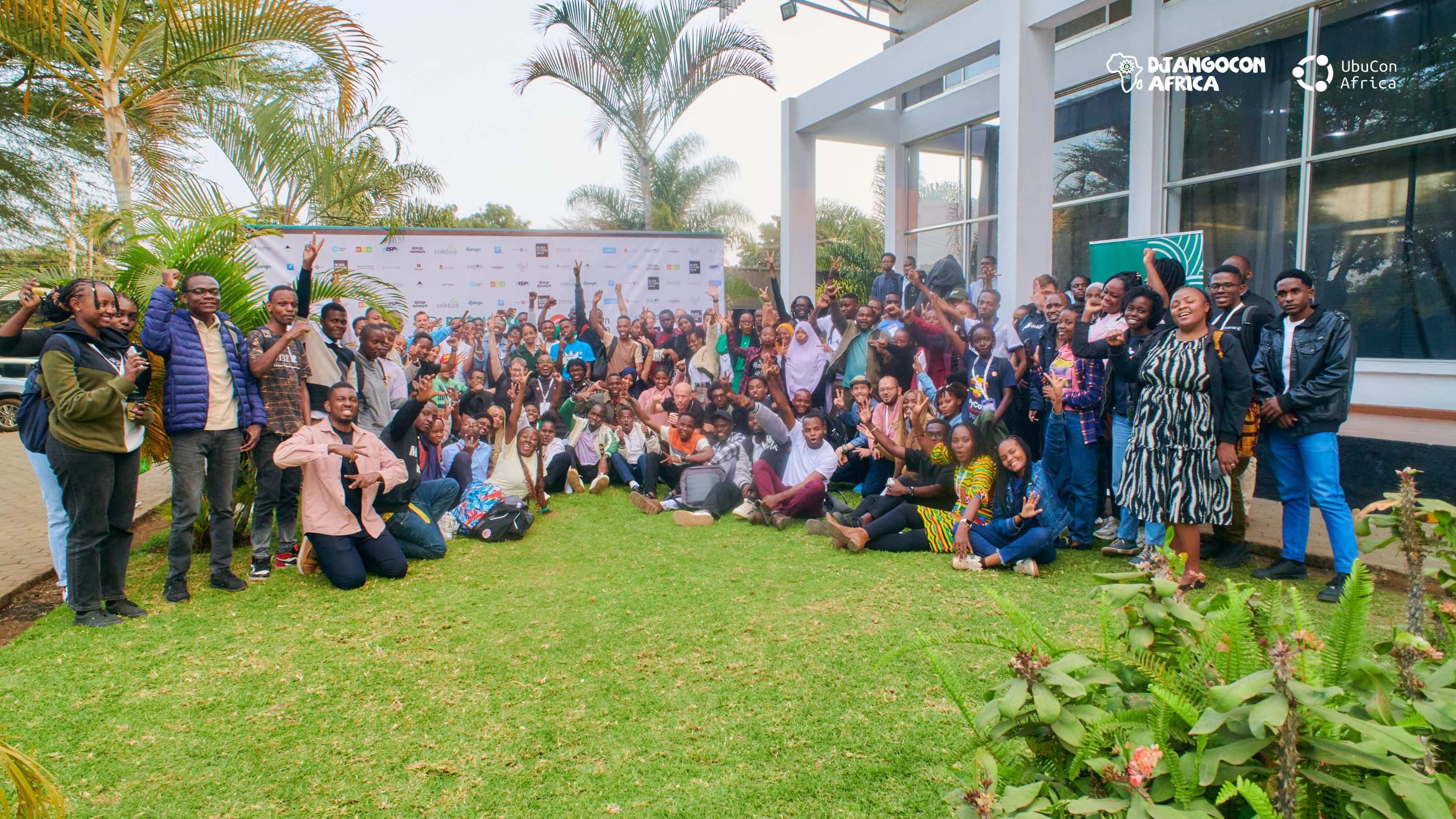
I arrived at Kilimanjaro Airport, just a few minutes from windhoek, Namibia passing through Addis Ababa, Ethiopia, and I met Nancy Amandi and Edmond Makolle at kilimanjalo airport. We spent some time at the airport looking for a ride into the city, and eventually, we reached Arusha in the early hour. True to Tanzanian hospitality, Julius Moshiro was waiting for us with a warm “karibu”, a perfect welcome to start our trip.
First Day at the Conference
The first day was amazing. We were welcomed by calm, slightly chilly weather, a refreshing contrast to Windhoek, where I had come from. Many people assume Namibia is always hot because of the desert, but we actually experience all four seasons; I lost count of how many times I had to explain that!
The conference venue itself was great. We reconnected with old friends and made new ones. The conversations began immediately, carrying the warm spirit of open source community.
One thing that caught my attention was a familiar Orange logo at the event. It’s not a Django logo, but it’s famous in the open source world: the Ubuntu logo. Ubuntu has always been close to my heart, representing the African spirit of giving and sharing knowledge. Seeing it at DjangoCon Africa reinforced how interconnected the open source community is. You know what? We had UbuCon Africa for the first time!
But before I go any further, I have to thank Thecla James, Zubeda, and others who supported me. These two ladies, who were part of Django Girls and the conference organizers, took the time to make sure I had meals and the energy to last throughout the conference. I am forever grateful. And it's about food, you know!!!
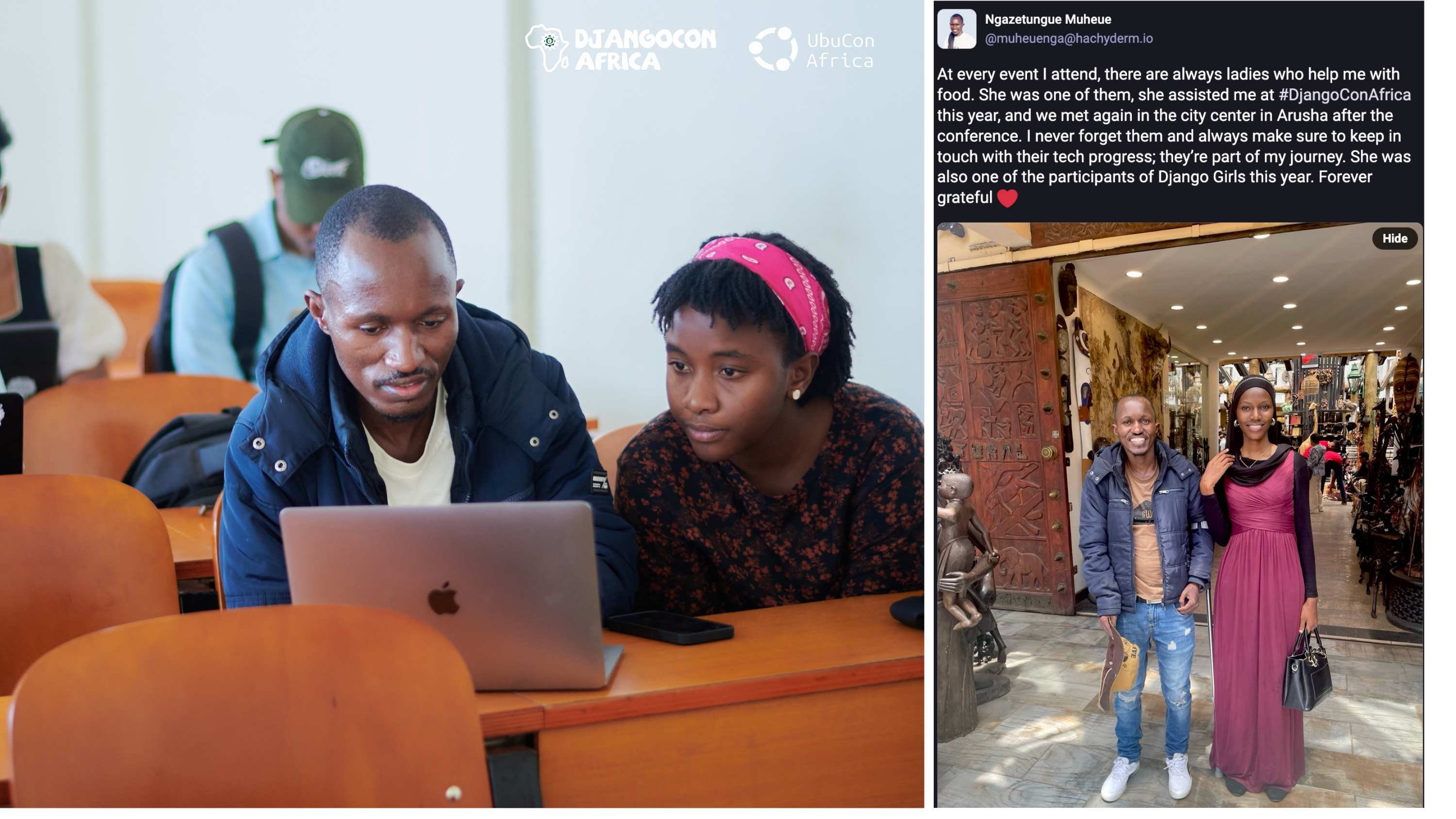
Talks from Different Speakers
I attended several talks, most of them focused on open source. For me, it’s always hard to pick a “best” one because every speaker brings a unique way of presenting, and I try to grasp something from each.
One moment that stood out was seeing Edmund from Cameroon present. Imagine coming from a French-speaking country, never having spoken in English outside of Cameroon, and delivering a talk in front of an international audience. Edmund did it with courage, and I was inspired enough to wrote an article about him after the conference, find the article here.
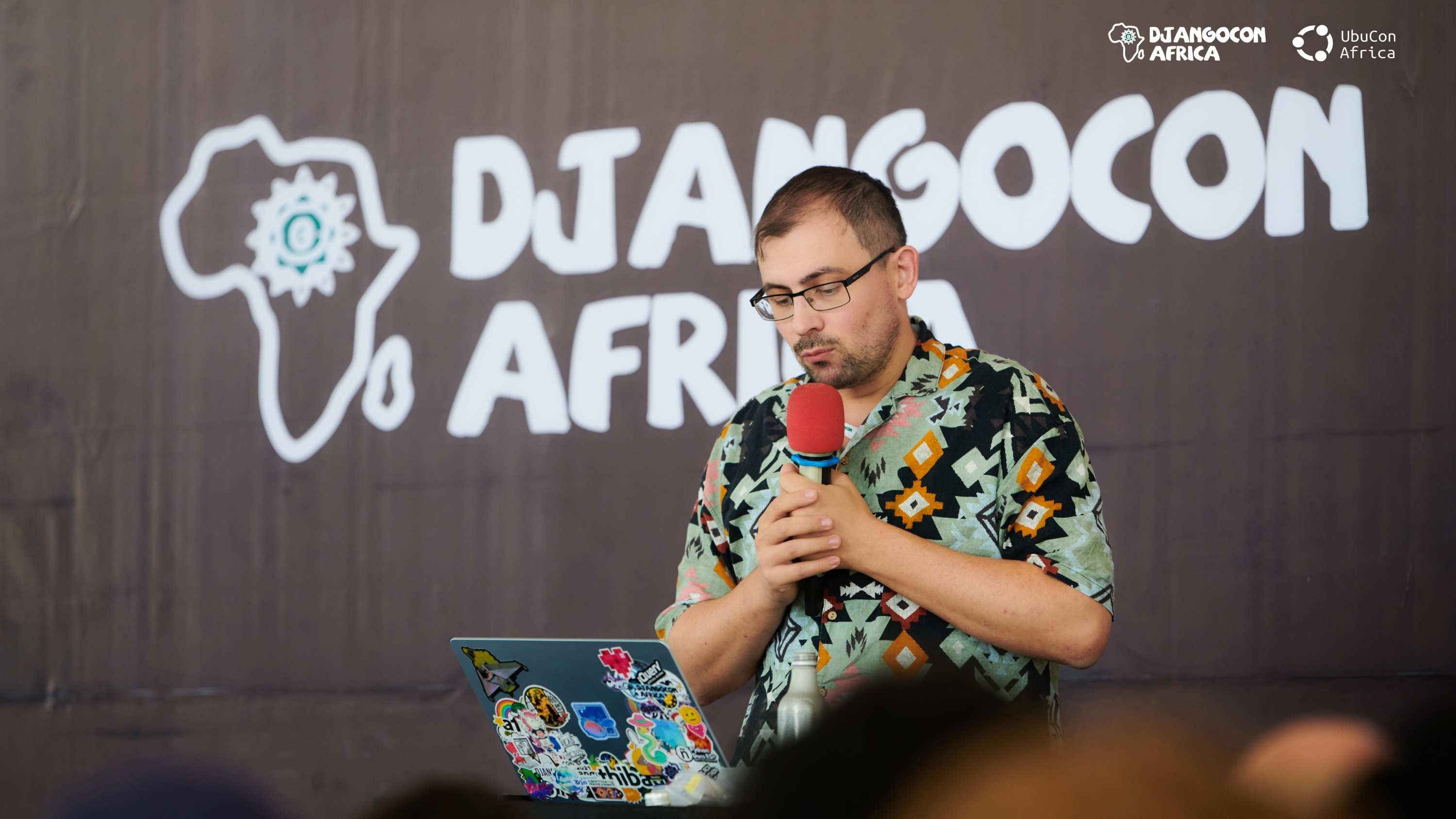
Another talk was the The future of Django talk by Thibaud Colas (President of the Django Software Foundation). He shared updates on how Django is growing fast and thriving as a project. Beyond his talk, we had a personal conversation about the Django Namibia community.
More Talks.....
The keynote by my friend Sarah Abderemane was inspiring. I don’t need to talk much about her talk itself, because for me, it’s always more about the joy of meeting her in person again. We’ve shared time together before in Scotland and the Czech Republic, and this was another chance to reconnect, exchange jokes, chat a bit, and throw a few jabs her way in the spirit of fun. As an introvert, I often interact by hiding behind humor, it’s my little secret way of opening up.
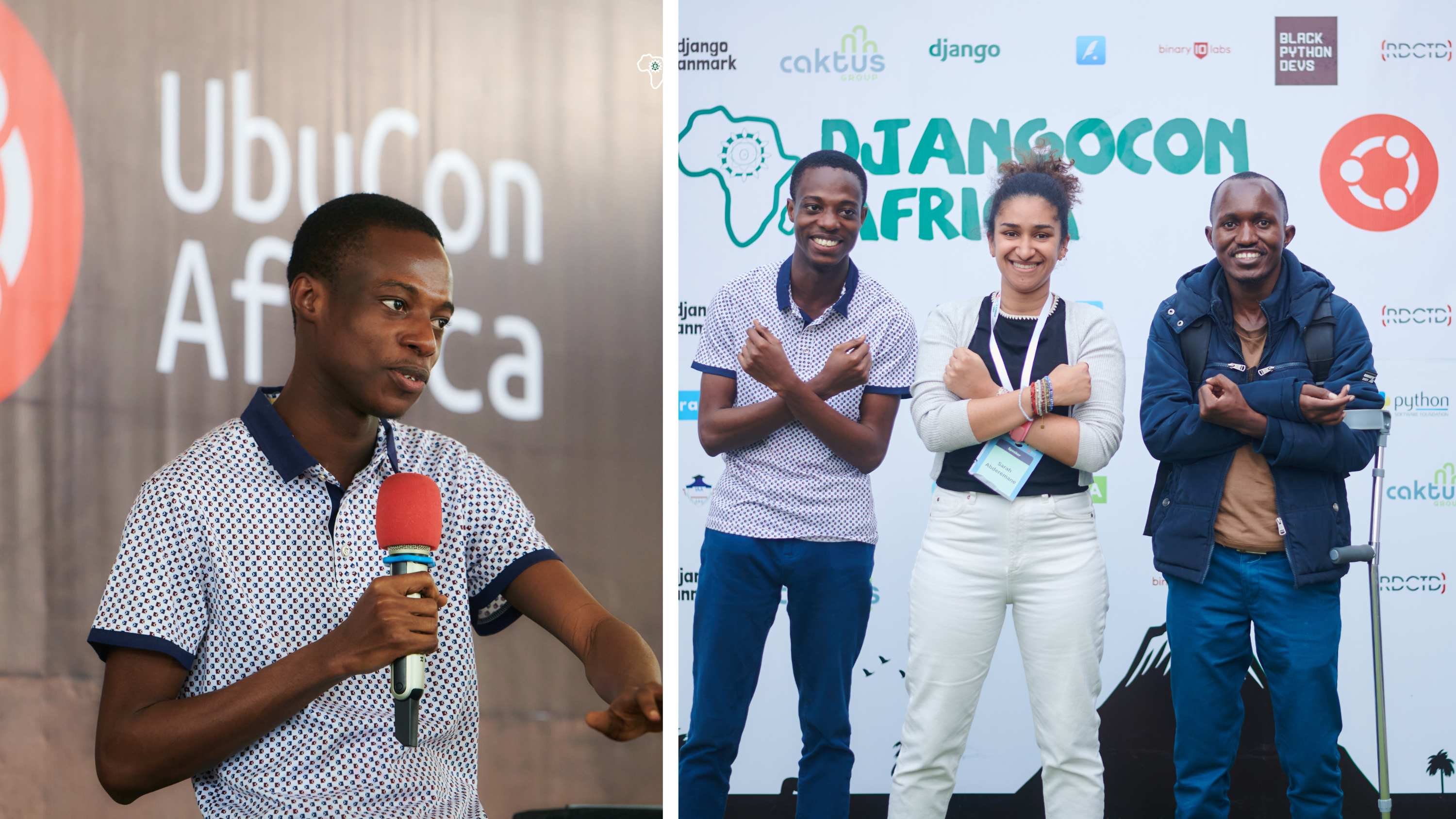
Another good talk was by Philip Narteh, If you’ve been on the web for a while, you’ll know that many applications aren’t accessible to everyone, leaving some people excluded from both the open-source community and the broader web. Through his talk, Philip highlighted practical steps toward building inclusivity, drawing from his experience with the Djangonaut Space Program, where he worked on making Django more accessible.
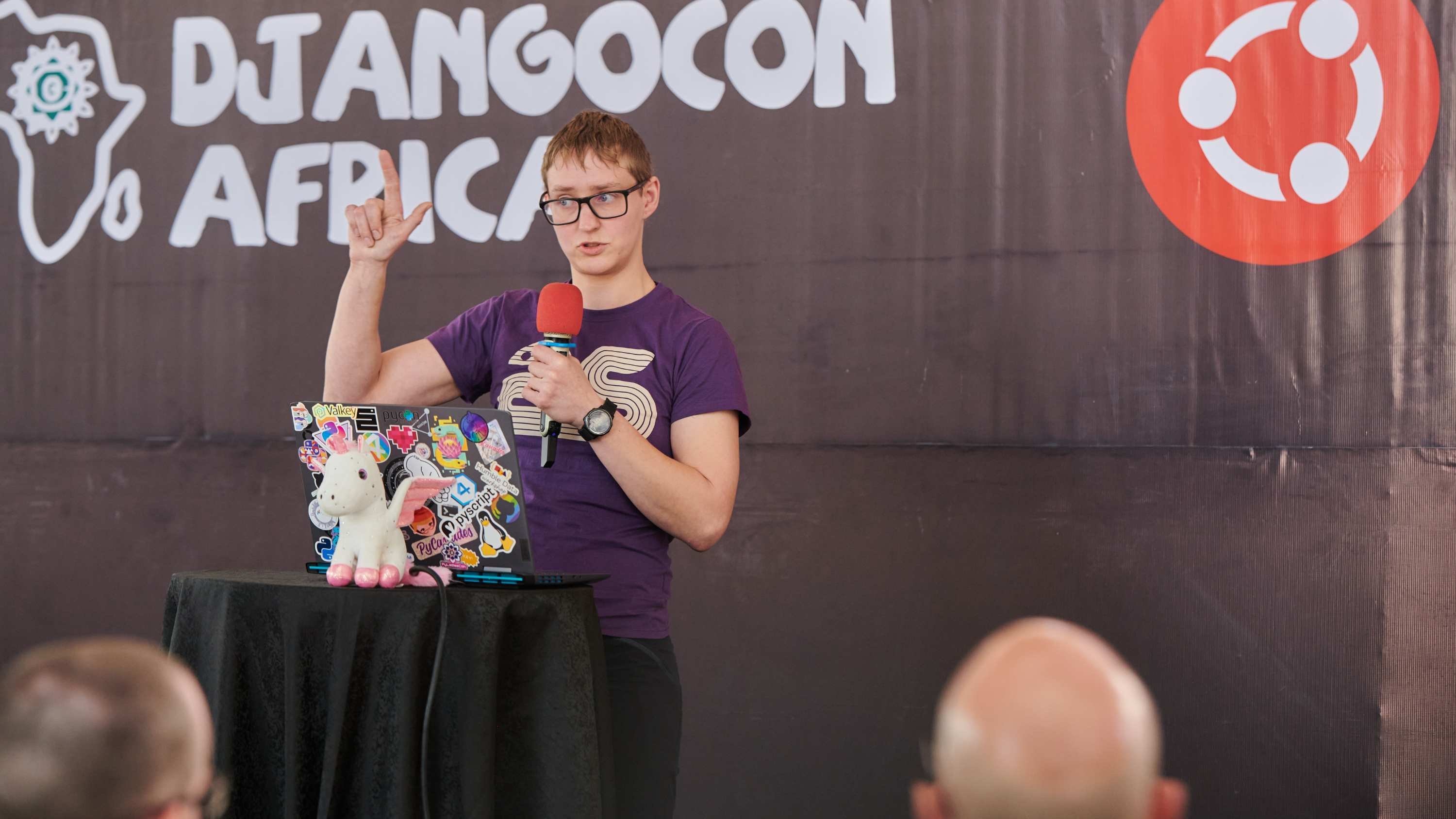
One of the talks that really stood out for me was by my friend Sheena Connel, titled “Modern Frontend Development the Simple Way.” She introduced tools like HTMX and AlpineJS that allow us to build modern web experiences within Python-based frameworks like Django. Previously, we were always told to rely on heavy JavaScript frameworks such as React, building APIs and then connecting everything separately. But Sheena showed how these lightweight tools make full-stack development faster and much more fun. We integrated these tools into community projects like the Django Namibia website and etc.
We also had Jan Gondol, an advocate for open education, open science, and open data, give a fascinating talk titled “The Django Whisperer: Talking to LLMs Like a Pro.” He looked into how large language models can be leveraged with Django opened up new possibilities for developers.
Brayan Kai Mwanyumba gave a talk on “Enhancing Data Literacy and Model Explainability through Bayesian Statistics in Django.” He showed us how combining statistical models with Django can make machine learning outputs more understandable and transparent.
Ubuntu was present
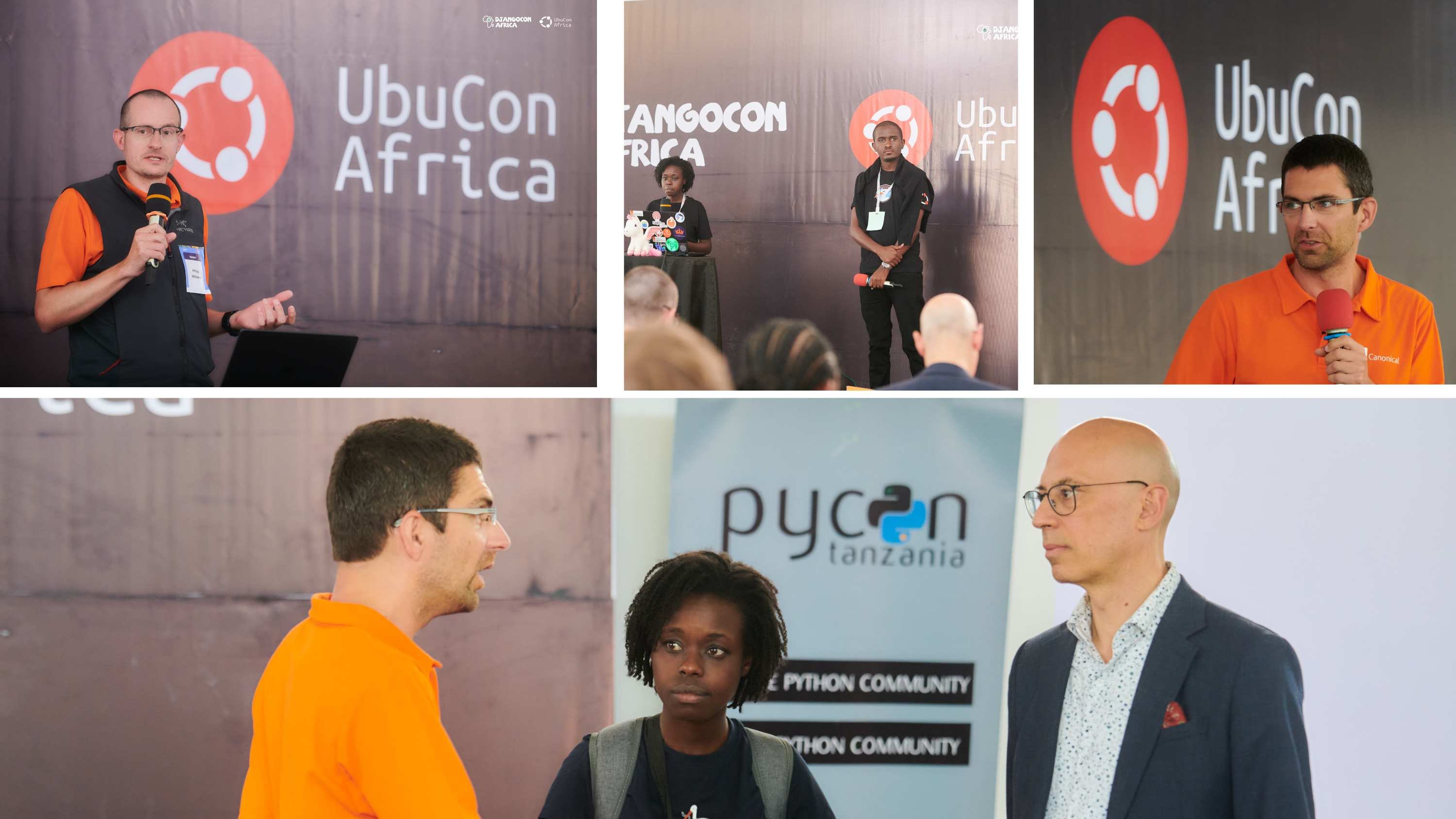
Geoffrey Nyaga and Sharon Koech, whom I had met before in the quiet city of The Hague, Netherlands, gave an inspiring joint talk that even featured my own session from Ubuntu Summit 2024. What impressed me most was watching two speakers present together, passing words and ideas back and forth so smoothly, it was both fun and impressive. Their talk was about "Open the door to open-source; welcome to the Open Documentation Academy"
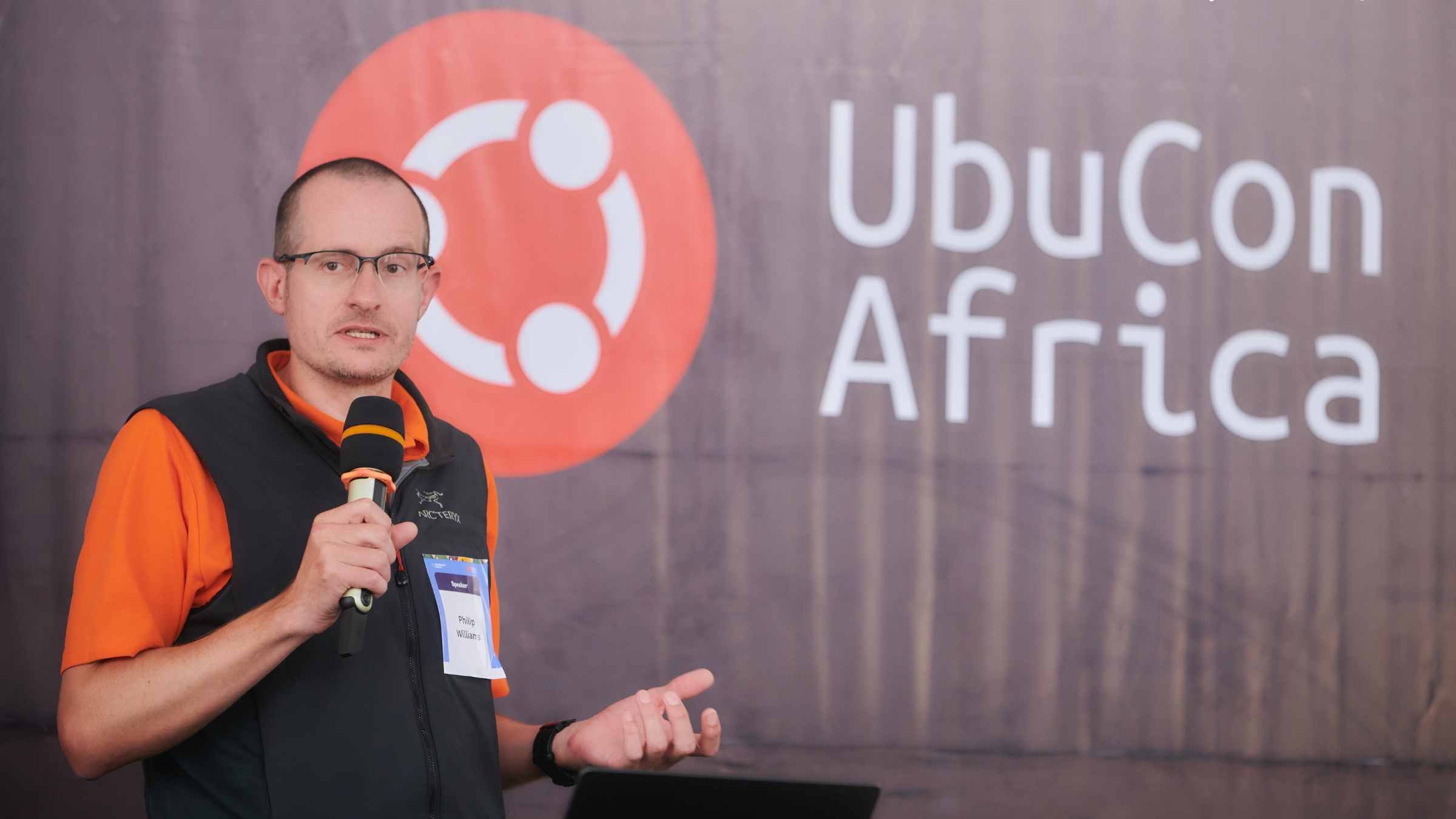
Another technical talk came from Philip Williams titled “You’ve met Ceph, but now meet MicroCeph!” He explained how MicroCeph, an opinionated Ceph orchestration tool, makes deploying and operating Ceph clusters as simple as a single command.
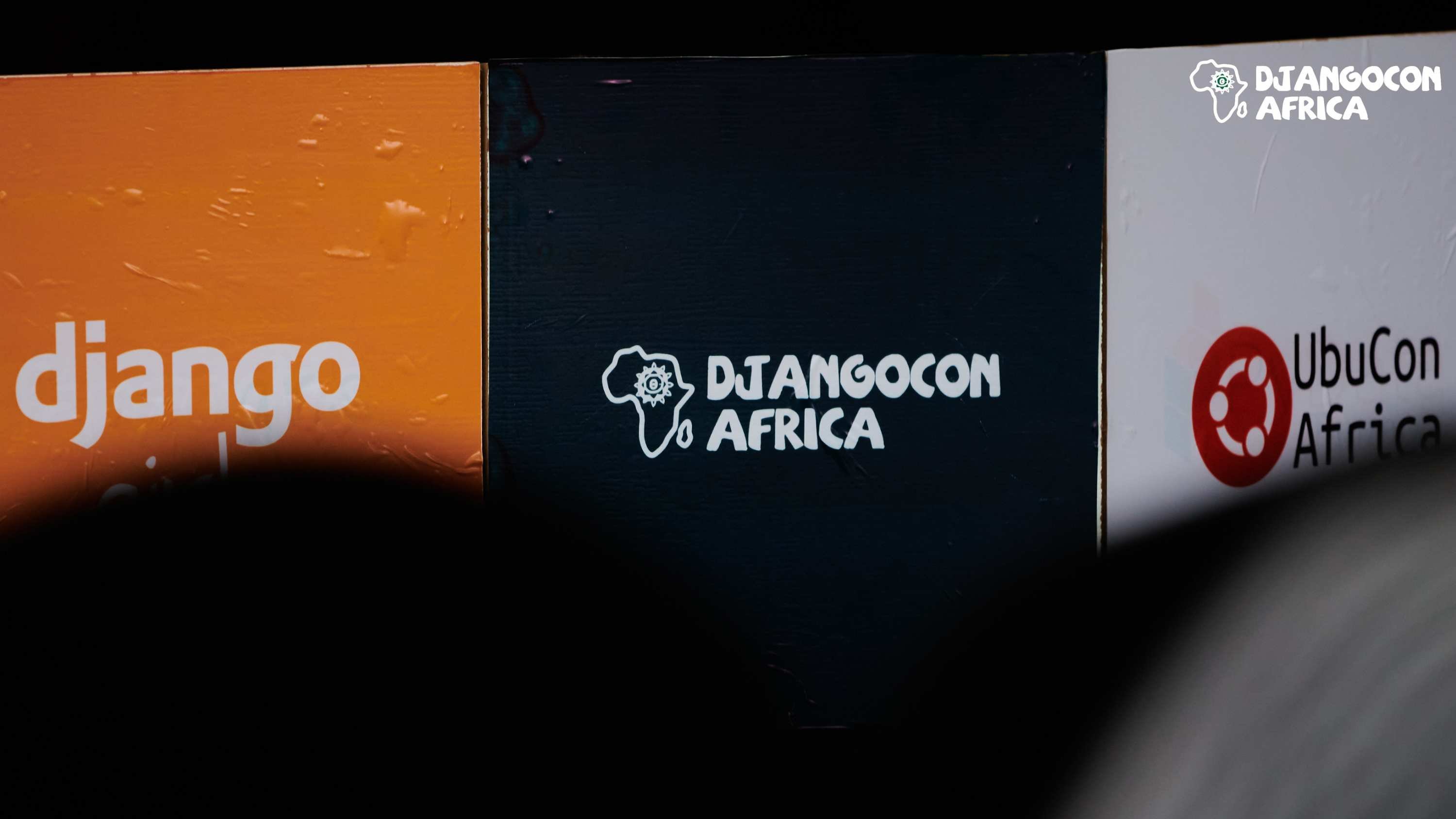
One of the things I expected was to hear some talks about Wagtail, since I have a growing interest in it, but unfortunately there were none, or perhaps I missed them. Still, the variety of sessions offered plenty of insights into Django, Python, and the broader open-source ecosystem.
The Future of Open Source in Africa
The conference also featured a lively panel discussion on the future of open-source software in Africa. This session brought together so many different voices from across Africa. Hearing them share their perspectives on our challenges and opportunities was powerful. For me, this was the heart of the conference. It was a real reminder that open source isn't just code, it's about making sure African developers and communities have a real seat at the table, shaping the global future of tech.
The Workshops
I joined the "A Novel Way of Creating Multi-Tenant Apps using Django... No Third Party Packages Apply workshop" by Shaun De Ponte, He took us through on how to isolate tenant data securely while keeping SaaS platforms scalable. It was practical, hands-on with Django, and the instructor was very supportive.
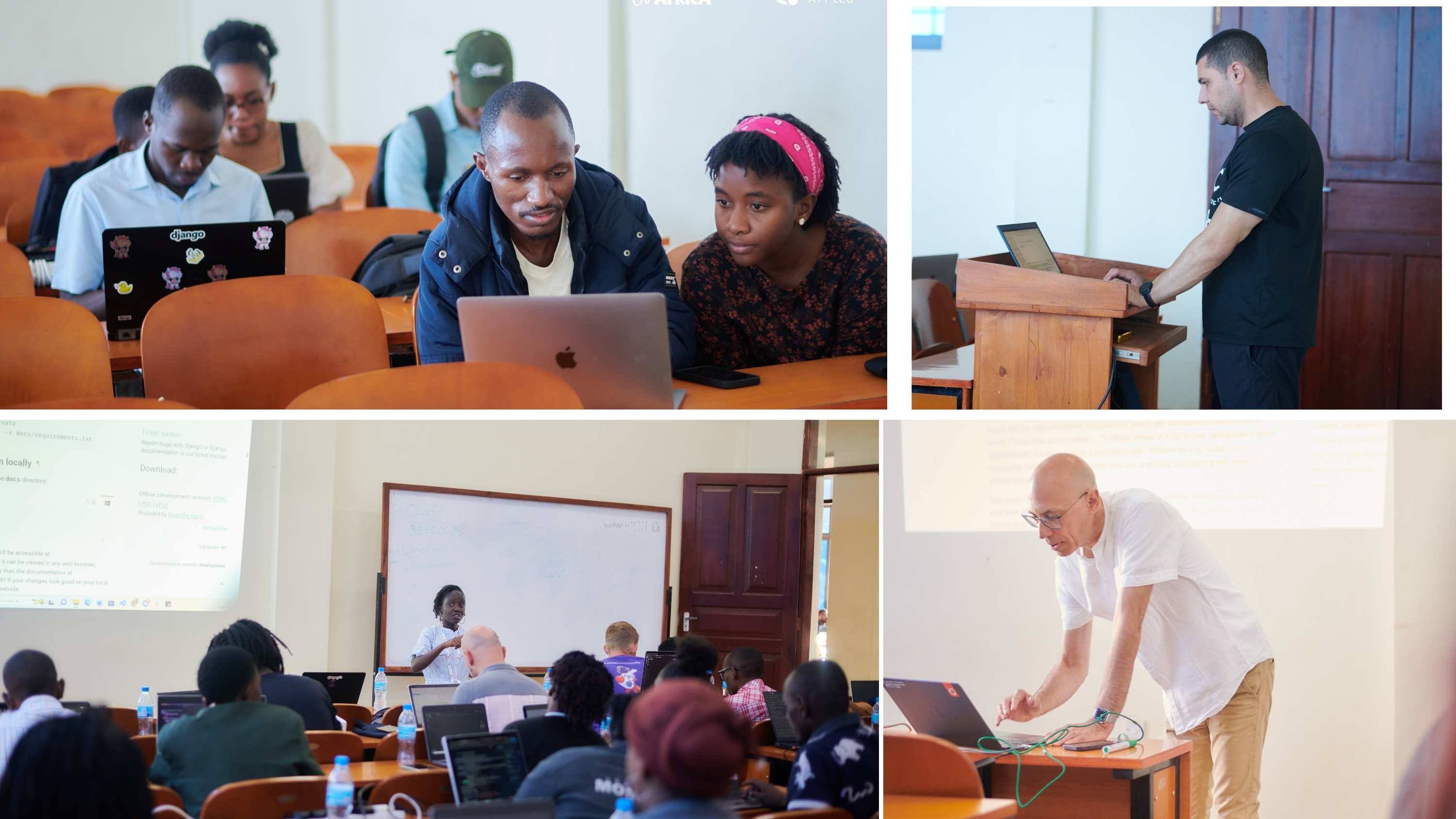
Another workshop by Daniele Procida focused on recruitment and his project Fanaka, a handbook that helps people write CVs and prepare for jobs in the software industry. He highlighted how open source can impact real lives and encouraged community contributions.
The Sprint
Sprint day was one of the most exciting parts of the conference. I contributed to ShotGeek, an open-source basketball project started by Kudzayi Bamhare, a regular PyCon Namibia attendee. Working alongside Tim Schilling and others, my commit was merged during the sprint! That feeling of contributing to open source and seeing my work become part of a project was unforgettable. I plan to continue contributing to ShotGeek, and I encourage others to do the same. Beside contributing Tim gave a talk about Contributing to the Django Community.
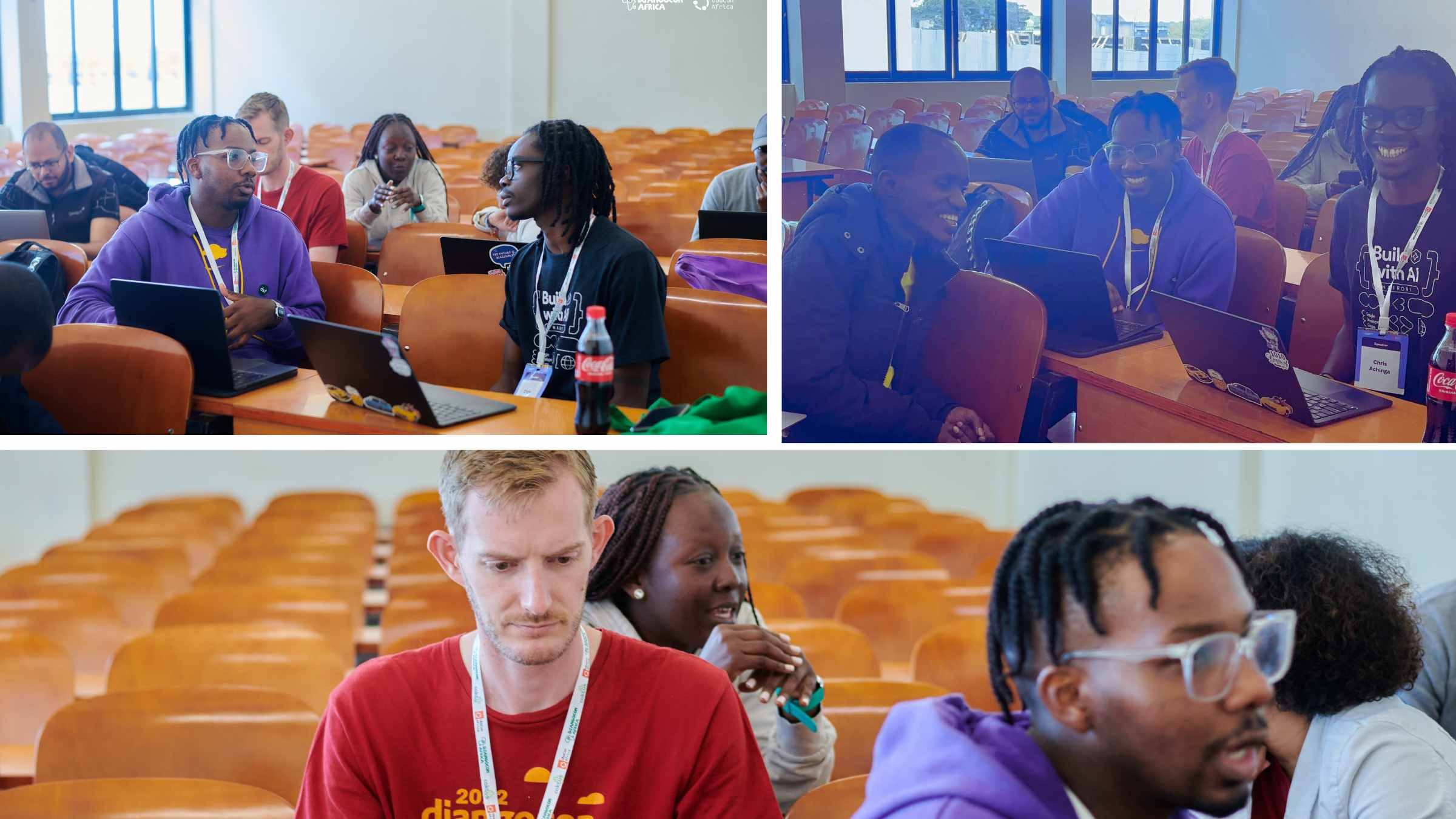
This is the spirit of the conference, putting software into people’s hands, empowering them, and building a supportive community.
Visiting Arusha City Center
I got the chance to visit Arusha’s busy city center with Philip Narteh and Julius Boakye. For the first time, I rode in a tuk-tuk (Three wheeler), something we hardly use in Southern Africa. Maneuvering through the heavy traffic was an adventure on its own! In Namibia we don’t have this level of traffic, so the constant honking was overwhelming at first, but it was also part of the experience. We also visited the Tanzanite Museum, where I learned about one of the world’s rarest gemstones, mined only in Tanzania. Seeing the deep violet-blue stones up close and learning how they are discovered, processed, and polished was an amazing experience.
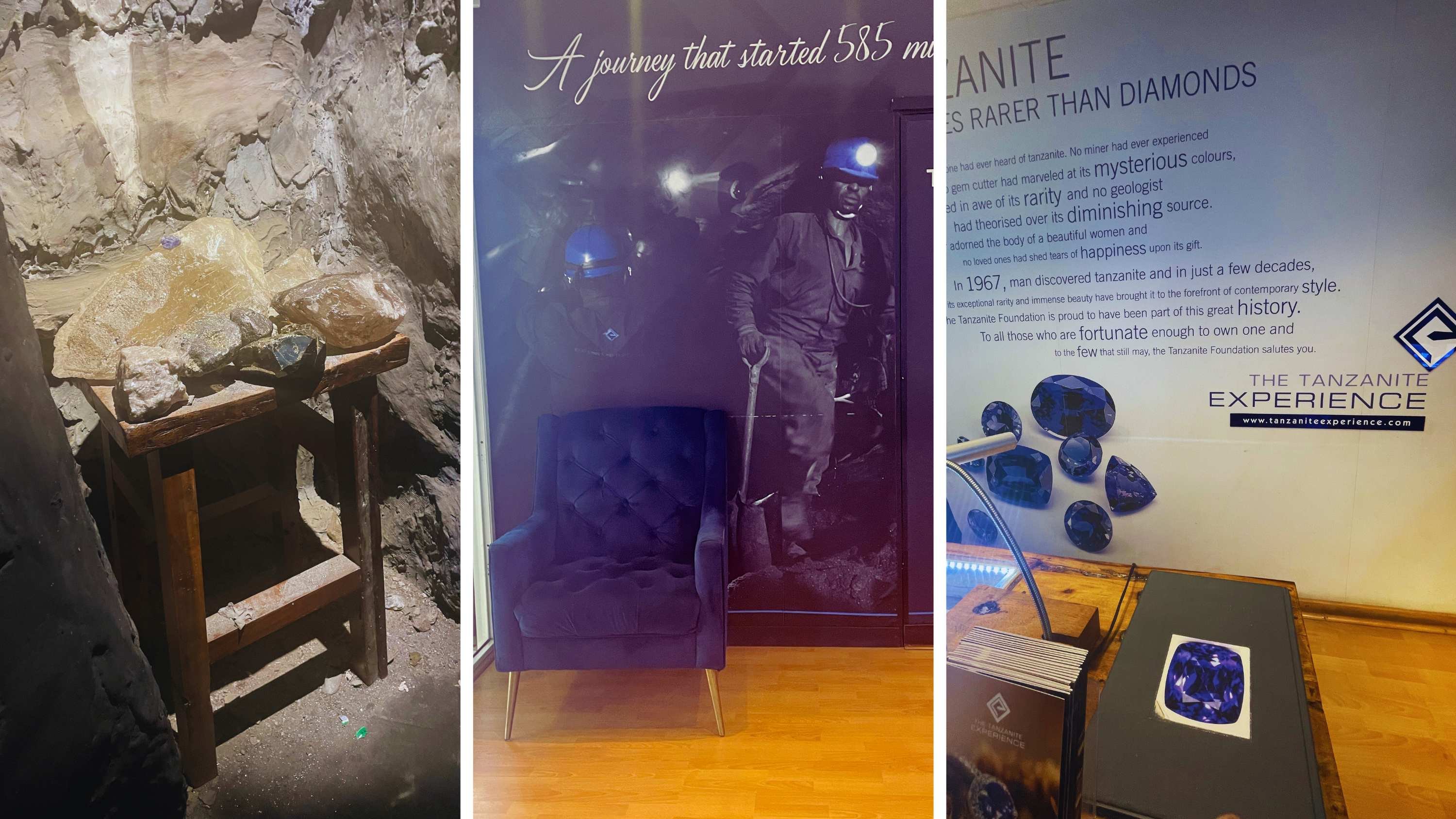
Another highlight was the Cultural Heritage Centre, an attractive space filled with art and crafts. This is where I belong, as I was raised doing crafts by my grandfather.
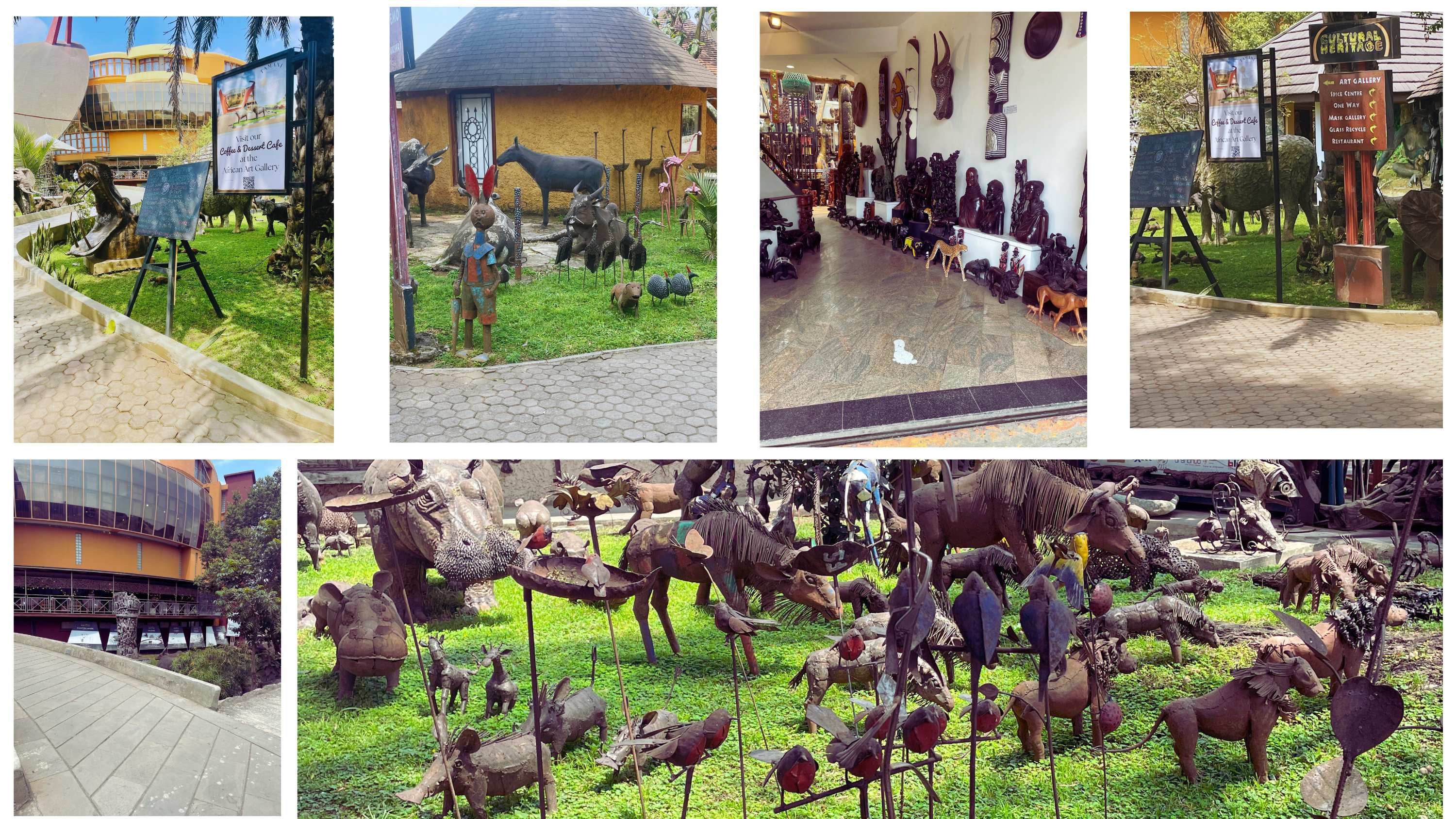
Community Connections
One of the best parts of DjangoCon Africa was meeting people, both old friends and new faces. It’s always inspiring to see how eager students and young professionals are to learn about Django, Python, and open source. Many of them were full of questions, curiosity, and energy, showing that the future of tech communities in Africa is bright.
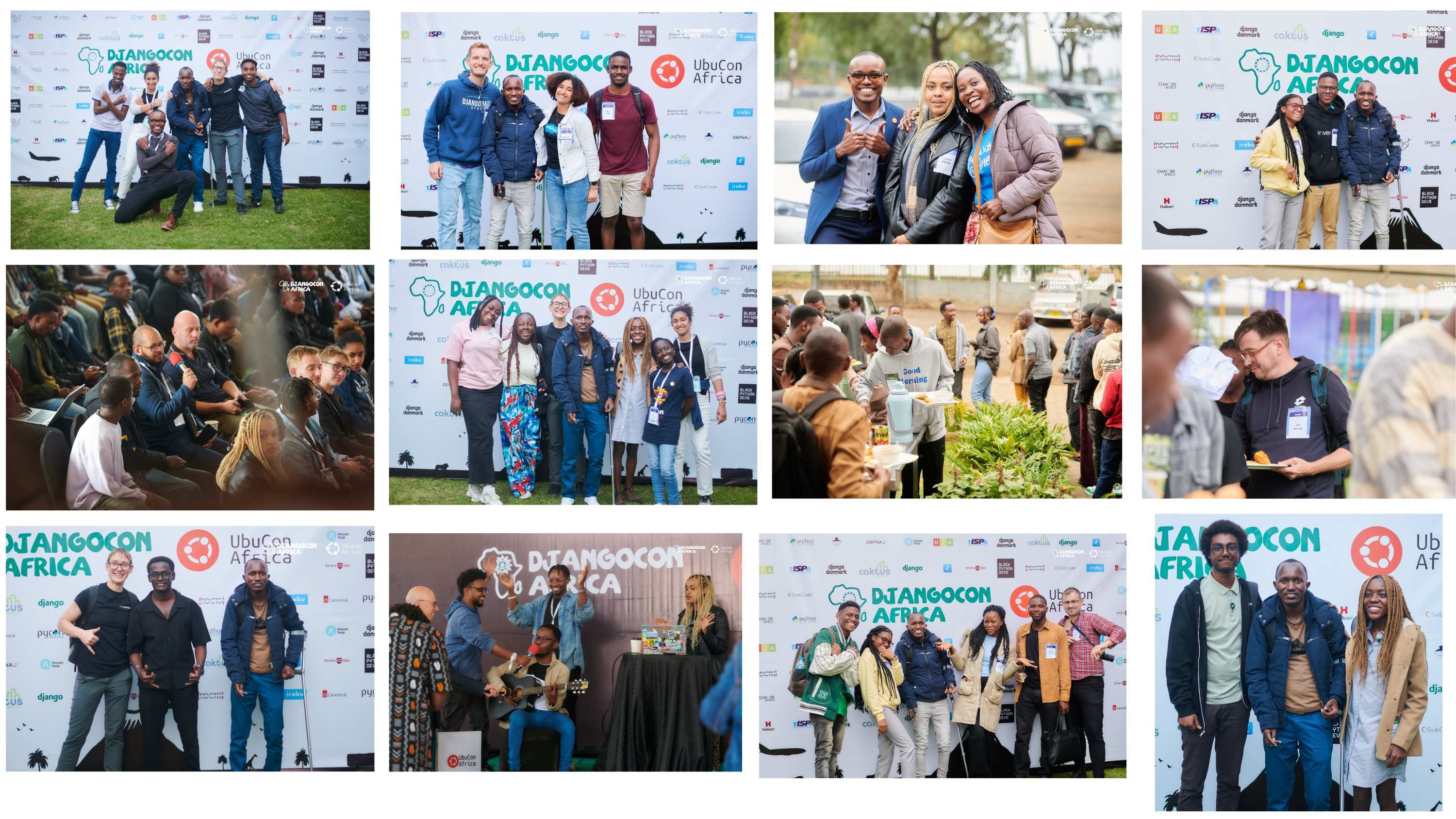
I had great conversations with many people like Salim Nuru, Doreen Nangira , Monica Oyugi, Chris Achinga, Noah Maina , Anna Makarudze , Hope Adoli, Theresa Seyram Agbenyegah , Ariane Djeupang , Lidya K Tilahun, Kayongo Johnson Brian and many more. Meeting them again reminded me how much these conferences are about more than just code, they’re about building and strengthening friendships across borders. We took pictures together.
Key Takeaways
- Community is everything- Africa’s open source growth is powered by people, not just code.
- Sharing knowledge multiplies impact- mentorship and collaboration are vital for sustainable growth.
- Software should empower people- projects like Fanaka show how tech can create real opportunities.
- Cultural spirit enhances tech- the East African warmth, and Ubuntu philosophy make collaboration stronger.
- Africa’s tech ecosystem is rising fast- talented developers and passionate communities are building solutions for local and global needs.
I also noticed a strong emphasis on mentorship and inclusivity. Many sessions were designed to help beginners and students feel confident contributing to open source. This reminded me of PyCon Namibia’s Educational Day, where we introduce IT concepts to high school students and guide them through hands-on projects. The same spirit of learning, sharing, and community building was everywhere at DjangoCon Africa.
Heading Home
After such a beautiful week, it was incredibly hard to say goodbye. As my flight lifted off from Tanzania, tracing a path back through Addis Ababa before finally touching down in Windhoek, I knew I was carrying home far more than just souvenirs.
DjangoCon Africa in Arusha was a genuine community gathering. It was the kind of event where knowledge flowed freely, laughter echoed through the halls between sessions, and the connections we made turned every moment into something lighter and more meaningful.
A huge and sincere thank you to the Python Tanzania team, DjangoCon Africa organisers and everyone who organised this incredible event. Your hard work created something truly special.
If you enjoyed this recap, you can find more of my writing on open source, AI, and community over on Kafkai. Feel free to sign up so you don't miss what's next, there's always something new to learn and explore!
Until next time.